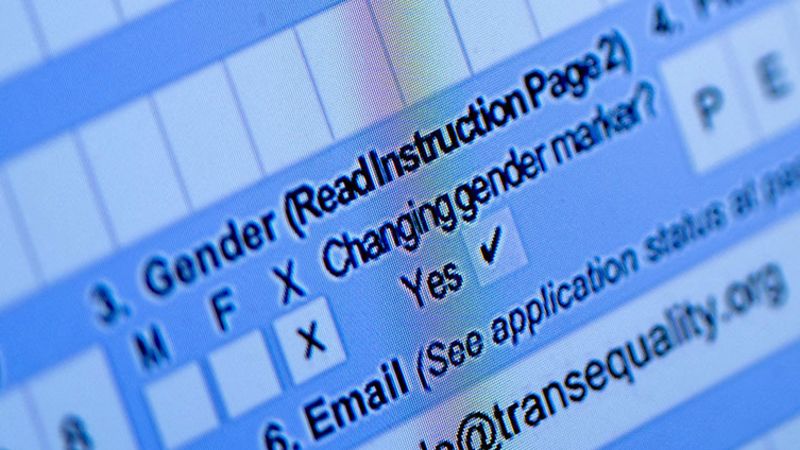Federal Judge Blocks Trump Admin’s Passport Limits for Transgender and Nonbinary Rights
Judge Blocks Trump Administration’s Passport Policy Limiting Gender Markers for Transgender and Nonbinary Individuals
In a significant legal victory for advocates of transgender rights, US District Judge Julia Kobick has ruled to block the Trump administration’s controversial policy that sought to limit passport sex markers for transgender and nonbinary Americans. This ruling represents a crucial step toward safeguarding the constitutional rights of individuals who identify beyond the binary confines of “male” and “female.”
The Background of the Legal Challenge
The issue came to light following an executive order signed by President Trump in January, which defined sex strictly as male or female, dismissing any possibility of gender transition. This policy mandated that passport applicants only receive sex markers that corresponded to the gender assigned to them at birth—a stance that disregarded the existence and identity of many transgender and nonbinary people.
In response to this policy, the American Civil Liberties Union (ACLU) filed a lawsuit, arguing that the policy not only infringed upon the rights of transgender individuals but also violated their constitutional rights to equal protection under the law.
Details of the Ruling
Judge Kobick’s ruling expands a previous preliminary injunction, initially applying only to six individuals involved in the ACLU’s lawsuit. The new ruling now includes all transgender and nonbinary individuals who:
- Are applying for their first passport.
- Need to renew a passport expiring within one year.
- Require an updated passport due to a lost or stolen document.
- Seek to change their name or sex designation.
Kobick’s decision emphasizes that the government has failed to justify its restrictive policy or demonstrate any legitimate constitutional harm from preventing its implementation. She stated, “Even assuming a preliminary injunction inflicts some constitutional harm on the Executive Branch, such harm is the consequence of the State Department’s adoption of a Passport Policy that likely violates the constitutional rights of thousands of Americans.”
The Impact on Individuals
The effects of the Trump administration’s passport policy were profound and distressing for many. The ACLU had highlighted individual cases in its lawsuit, illustrating the real-life implications of the policy:
- One woman received her passport with a male designation despite her identity as female. This misalignment left her feeling vulnerable and anxious.
- Another applicant submitted her passport for a name and gender change but feared missing significant family events due to delays in processing.
These anecdotes underscore a growing concern among transgender individuals that the passport application process, instead of being straightforward, could subject them to discrimination and anxiety.
Legal and Social Significance
The latest ruling is not merely a legal victory; it also represents a larger societal acknowledgment of the rights of transgender and nonbinary people. Judge Kobick pointed out that the Executive Order and Passport Policy are discriminatory, requiring scrutiny under intermediate judicial standards. The government failed to demonstrate that its actions were significantly tied to important governmental interests, thereby breaching these individuals’ equal protection rights.
The ruling reflects a crucial shift in the judicial landscape regarding LGBTQ+ rights, particularly as it relates to how governmental policies can affect personal identity. The ACLU and various advocacy groups view this decision as a critical affirmation of their fight for equal representation and recognition of diverse genders.
The Road Ahead
As this legal battle continues, the White House has not yet provided comments regarding this latest ruling. The State Department, which oversees passport policy, is now faced with adapting to this judicial outcome as litigation proceeds. The societal conversation around gender markers and identity is evolving, and this case could set precedents for how governmental procedures engage with issues of gender identity in the future.
The ruling serves as an important call to address the ongoing structural inequalities that transgender and nonbinary individuals experience. It underscores the pressing need for comprehensive policy reforms that are inclusive of diverse gender identities, especially as these individuals navigate everyday experiences such as travel.
As we move forward, this decision may catalyze further discussions and actions toward broader policies aimed at securing the rights of all citizens, irrespective of their gender identity.
In conclusion, the fight for inclusive and understanding policies continues. The ruling by Judge Kobick represents a significant chapter in the ongoing struggle for rights, recognition, and respect for the transgender and nonbinary communities in the United States.




